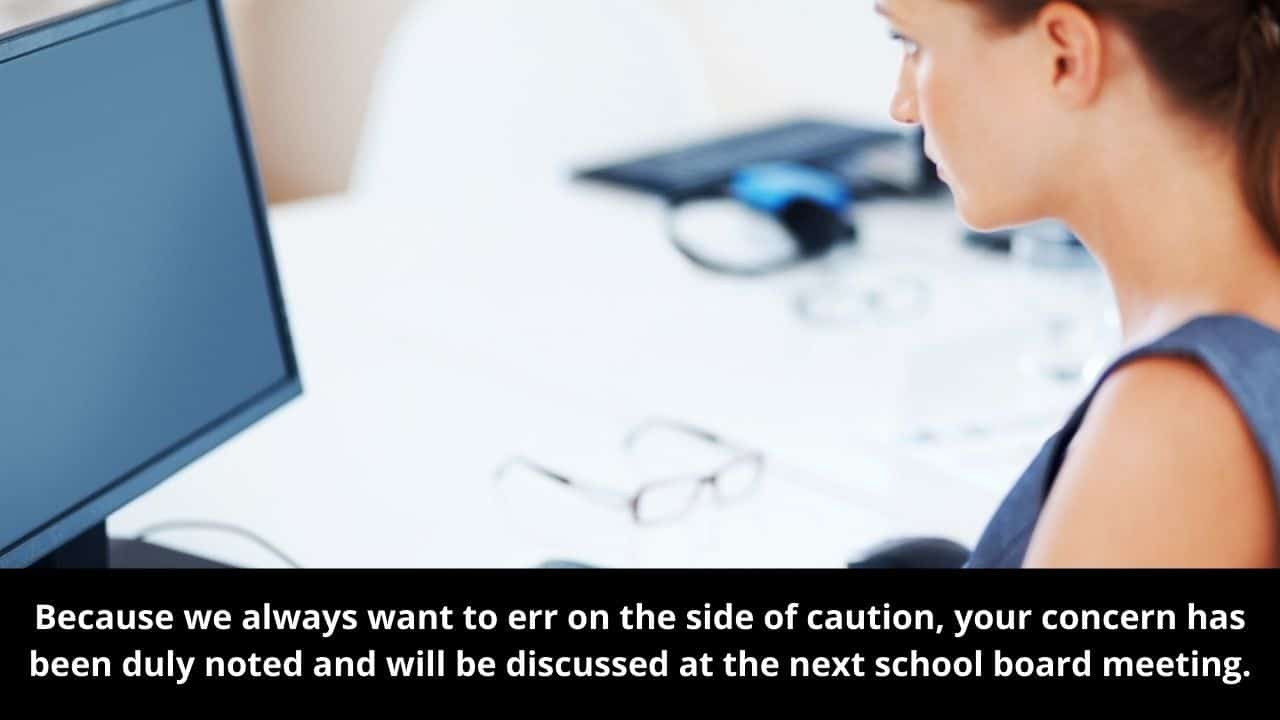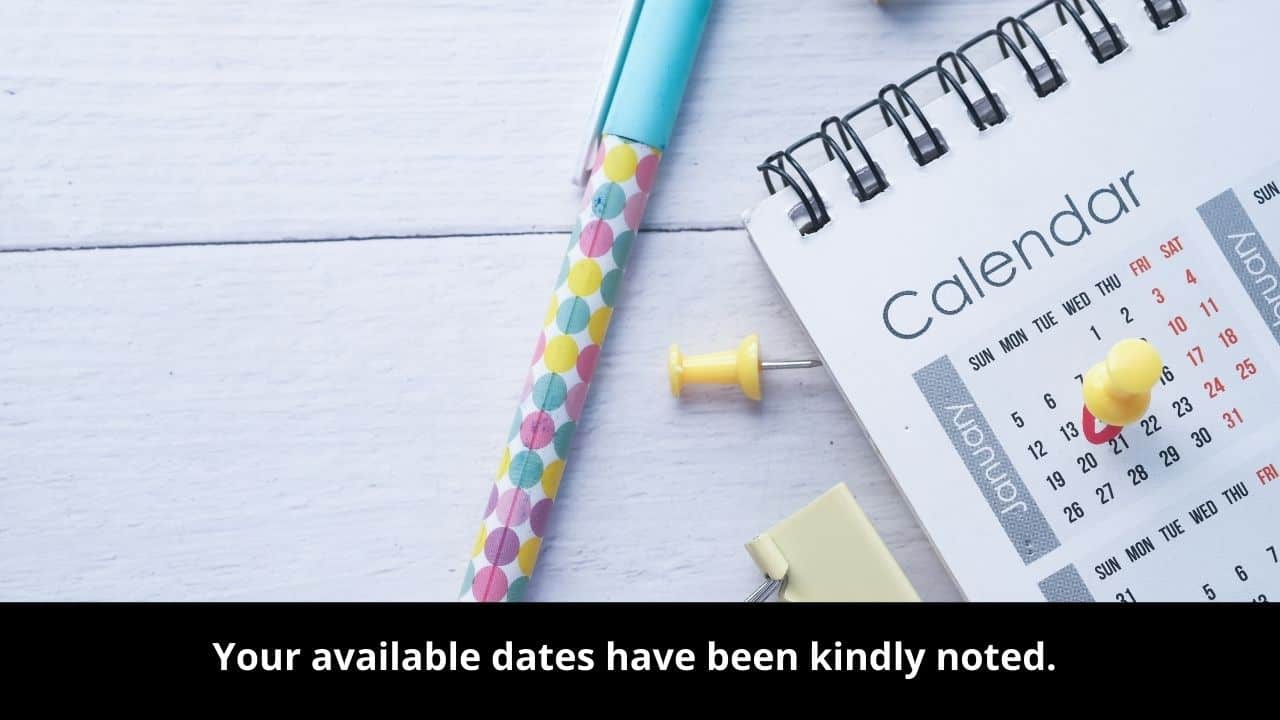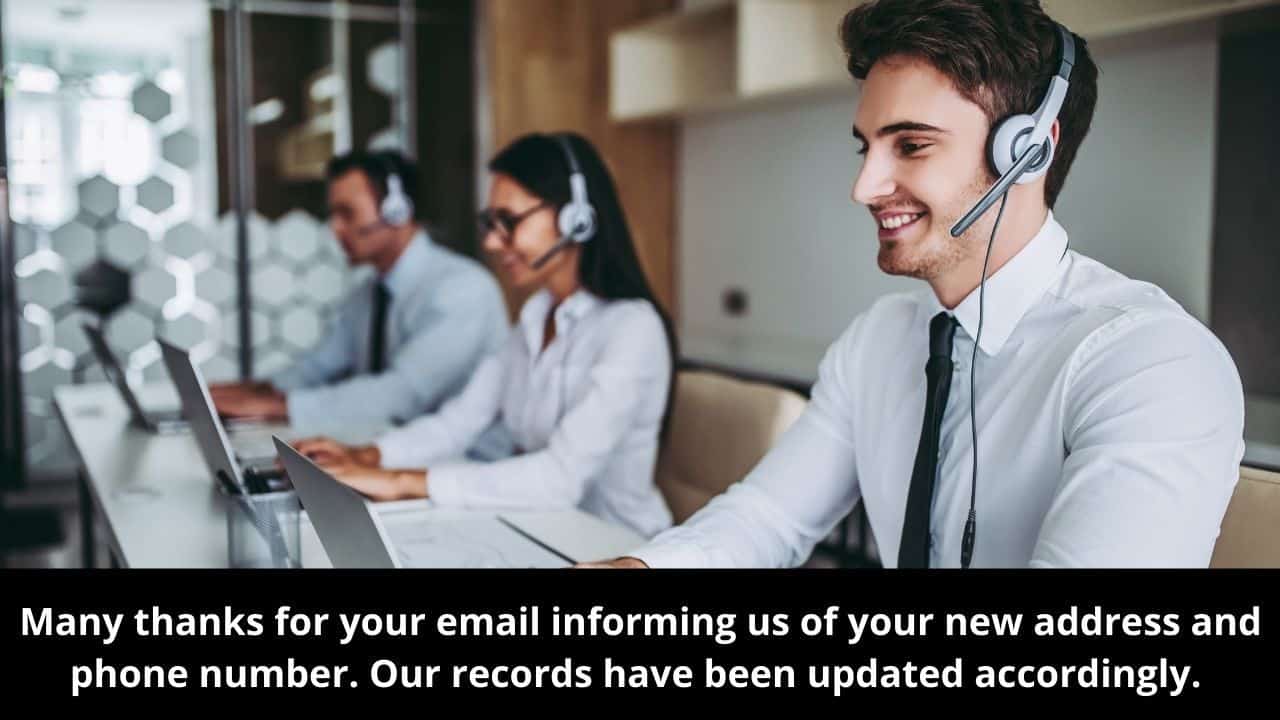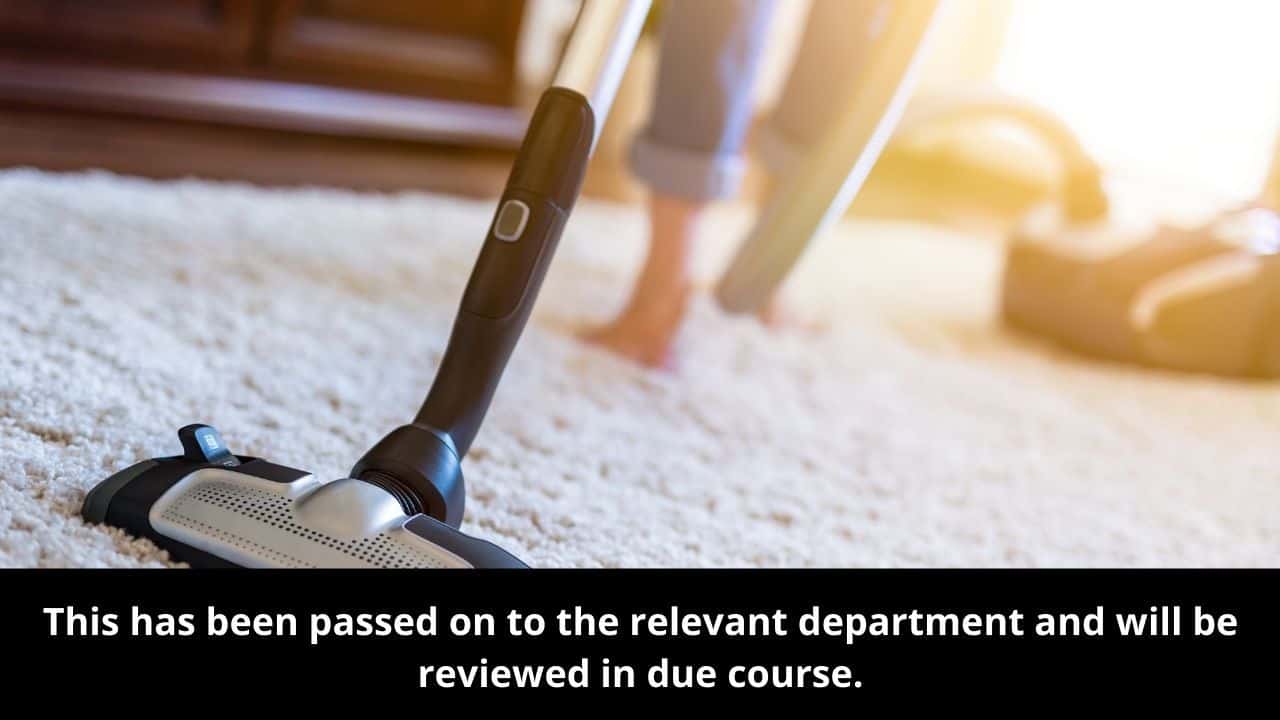In our modern world of instant communication, it can be easy to miss important details amidst the constant flurry of emails we all send and receive.
We all have experience with the worry that we have missed some particularly crucial message.
For this reason, it is always comforting to receive confirmation that someone has understood what you have told them and taken note of it.
In the world of professional emailing, it is considered good practice to confirm that you have taken information on board, so that the person you are corresponding with knows without a shadow of a doubt that their message has in fact been delivered, read and understood.
Telling someone that their message, or a particular point within it, has been well noted, saves them from having to follow up with you later to double-check that you have in fact taken into account what they have said to you.
This kind of positive reassurance is particularly important in business correspondence, and in particular when the information in question has to do with scheduling or with the minutiae of a contract negotiation.
It is good to get in the habit of confirming the receipt and comprehension of information.
This will help this kind of confirmation of receipt to become second nature.
What is meant by “well noted”?
To say that something is “well noted” in business correspondence is to confirm that you have taken note of a particular piece of information. Derived from the literal act of taking a note, the “well” that has been added onto the word “noted,” emphasizes that the sender’s message has been carefully read and fully understood.
10 other ways to say “well noted” in Business Correspondence
While it is always good to confirm that you have received and understood the messages you are sent, it is particularly important to do so in a business context.
Business correspondence refers to written communication that takes place between organizations, within organizations or between customers and the organization.
It uses the formal or consultative language register.
Something that sets business correspondence apart from personal messaging is the fact that it is used to serve as a historical record of a business interaction and can have legal ramifications.
For this reason, it is essential to be as clear as possible and leave no room for misunderstandings.
1. Duly noted.

To say that something has been “duly noted” means that it has been recorded according to the proper procedure.
Duly is an adverb and is used in this phrase to mean “in the proper fashion”.
Traditionally, the expression means that a piece of information has been written down in the correct way, according to the usual custom.
It is often used to express that a contribution to a meeting or discussion has been taken down in the written record of the meeting.
For example, if a meeting attendee raises a concern about a proposal, the meeting’s facilitator might say, “Thank you, your objection has been duly noted,” meaning that the concern they raised had been recorded in the minutes of the meeting.
When used in email correspondence, this phrase has essentially the same meaning, namely that something that was communicated has been recorded according to the correct procedure.
Dear Gemima,
Thank you for your email about the lack of safety rails at our school’s playground. Because we always want to err on the side of caution, your concern has been duly noted and will be discussed at the next school board meeting.
Kind regards,
Sally Howarth
2. I have taken note of this.

An alternative way to express that something has been read, understood and recorded is to say, “I have taken note of this.”
This phrase is a straightforward confirmation that the information provided has been written down in the relevant place and will be taken into account when decisions are being made about the matter at hand.
Dear Mr. Burke,
I received your message about the shower head not working in your new rented apartment. I have taken note of this and will follow up on this matter with the landlord.
I will be in touch shortly.
Best wishes,
Anthony Baker
3. Noted with thanks.

A warmer way to communicate that something has been understood and recorded is to say, “noted with thanks.” This is a great way to acknowledge receipt of positive or helpful information.
Hi Fred,
I hope this email finds you well! We are grateful for your recent contribution to our online dialogue board, which has been noted with thanks.
We will send you a notification if we receive any responses to your post.
Hassan Michaels
4. This will be taken into consideration.

Another alternative to “well noted” that implies clear action, is to say, “this will be taken into consideration.”
Saying that something has been “well noted” only means that it has been recorded in the appropriate place.
You may find yourself looking for an alternative phrase to express the person you are communicating that you will actively be considering the information they have provided.
This can be especially useful when there is a decision to be made, and the person you are responding to has contributed information that will be of value while deliberations are ongoing.
Good morning Jenny,
Thank you for reaching out to me to inform me about your son Brian’s learning disability. This will be taken into consideration when we plan the groups for Saturday’s excursion.
Yours Sincerely,
Amelia Daly
5. I will take this on board.

An alternative to “well noted” that is used almost exclusively in a business setting, is the phrase “I will take this on board.”
To take something on board is defined by Oxford Languages as to “fully consider or assimilate a new idea or situation.”
It is essentially a way to tell the person you are communicating with that you will now consider the information they have provided as part of the greater context in which you make specific decisions.
Unlike many of the other alternatives to “well noted” included in this list, “take something on board” is informal language.
However, it is perfectly appropriate to use it in professional communication.
Dear Bethany,
I am reaching out to you because of your recent email to our HR department informing them of an incident that made you feel unsafe in the workspace.
Your complaint will be followed up comprehensively by HR, but I wanted to respond personally to your more general reflections about the hostile atmosphere that you experience as part of the company culture. I appreciate the time you took to write down your detailed suggestion for how improve the experience of working in the office and I will take this on board.
Yours sincerely,
Adam
6. Kindly noted.

A straightforward alternative to “well noted,” which can be used to maintain a feeling of goodwill between the sender and recipient, is “kindly noted.”
This phrase can also be reversed, if you suspect that someone has somehow missed an important communication, or if you simply want to draw their attention to something, while making clear that you wish them well.
For example, if you send someone a calendar with your availability but want to make sure that you clearly express when you are not free, you might say “Kindly note that I am not available on Friday, 10 September.”
Dear Ms. Warren,
Thank you for sending me your availability for therapy sessions over the coming months. Your available dates have been kindly noted.
I have some errands to run now but will get back in touch with you this evening to suggest a date and time for our first appointment.
Best wishes,
Alex Wallis
7. Message received.

A short-hand way to confirm receipt of a message, is simply to say, “message received.”
While this can be a great, concise way to tell a colleague that you have gotten their email or that you understood what they mean, you should be careful not to use it in an inappropriate context, or it may come off sounding too short, and therefore rude.
The best way to use this phrase is informally, as a quick confirmation that you understand what has been communicated.
Hi Mick,
Great, message received! I am rooting for you to get the promotion.
See you at the meeting on Monday.
Best,
James
8. I will make a note of that.

This alternative to “well noted” should be used in contexts where someone has informed you of something that may be important for future decision-making.
For example, if you are discussing a project that is in the early planning stages and the person you are communicating with informs you of something that will be important to remember in the later stages of planning, you might say “thank you, I will make a note of that.”
The implication of this is that while you are not in a position to come to any conclusions or say anything definite about what someone has told you at the moment, you recognize its potential importance to the matter at hand and are going to make sure it is appropriately recorded.
Hi Janine,
Thank you for letting me know about the bride’s dislike for surprises of any kind, I will make a note of that.
I look forward to planning the wedding with you over the coming months!
Best wishes,
Annie
9. Our records have been updated accordingly.

This alternative to “well noted” is formal and has a specific application.
Saying that something has been “well noted” is now almost as much an idiom, with the meaning something has been heard and understood, as it is a literal statement of fact that something has been noted down in writing.
However, there are quite a few situations in which what is actually needed is for information be recorded in the appropriate fashion.
Anything like medical records, flight bookings, or tax registrations, require regular updating as the circumstances of our lives change.
If you have moved, changed phone number, gotten married, renewed your credit card, had a baby, or made any number of other life changes, you may need to update the way your personal details are recorded in a number of settings.
In these cases, you are literally asking someone to record the changes you are informing them of.
Dear Mr. Chapman,
Many thanks for your email informing us of your new address and phone number. Our records have been updated accordingly.
We look forward to seeing you for your appointment on Monday.
Kind regards,
The Gilbert Family Practice Team
10. This has been passed on to the relevant department.

Another alternative way to say, “well noted,” that has a particular application is “I will pass this on to the relevant department.”
This can be used when someone has contacted the company or organization that you work for with information that is relevant to a particular department.
While you may have seen it, read it, and understood it, it would hardly be helpful for you to make note of it, as it is not relevant to your work.
However, that does not mean you should leave the sender without confirmation that their email has been received or without a clear idea about the status of their message.
The best thing to do in this case is to let them know that their message, or the information it contains, is being passed on to the right people.
Dear Jonathan,
Many thanks for your email informing us of the defects with your RV300 vacuum cleaner and requesting a refund. This has been passed on to the relevant department and will be reviewed in due course. In the meantime, we would like to offer you 15 percent off our entire website with the discount code SEPTEMBER15OFF.
Sorry for the inconvenience, we hope to resolve the matter as quickly as possible.
Kind regards,
The Customer Service Team
“Well noted” synonyms
Now that you have a grasp of the basic alternatives to “well noted,” you may be wondering how else you could acknowledge a point that someone has made in an email.
After all, if you have a professional job, it likely involves regular email correspondence.
This means you’ll spend a lot of time saying “well received” in email writing.
You probably also devote many hours of your week to typing phrases that let a sender know that you’ve understood their concern.
You may even regularly find yourself acknowledging multiple arguments, complaints, or updates in a single email.
To avoid sounding like a broken record, you can switch up the phrases you’re using to inform a sender that their points have been duly noted.
After all, just as you might want to know alternatives and synonyms for “thank you for your email,” you probably want to know alternatives for all frequently used phrases.
Knowing some short-hand synonymous phrases for “well noted” will help you respond to emails quickly and efficiently.
There are a wide variety of ways to express that you have noted something. Some are formal and some are only appropriate in informal correspondence.
Have a look at the following examples to learn a wide range of possible ways to say, “well noted.”
Formal synonyms for “well noted”
The professional world is increasingly becoming more casual.
In our modern workplace culture, co-workers generally refer to each other by their first names.
It is also becoming increasingly common for company representatives to use casual language when speaking to clients.
That said, there is still a time and a place for formal language. And especially if you are writing to someone whom you have not yet met in person, it is critical that you do not act overfamiliar too soon.
If you are corresponding with someone whom you are expected to show formal respect to, make sure you do not slip into the informal language register.
Here are several formal business English ways to let someone know you have received their email and understood their point.
Your point has been noted.
If someone gets in touch to make a single specific point about a matter that is currently under discussion, you can say, “your point has been noted.”
For example, let’s say someone responds to an email thread about revising company byelaws to let you know that they disagree with a proposed change.
You can respond by telling them you have made a note of their point.
How to use “your point has been noted” in an email
Dear Sarah,
Many thanks for your detailed feedback on the proposed change to our food and beverage policy.
Your email has been forwarded to senior management and your point has been noted.
I appreciate you taking the time to review the proposal so carefully.
Best wishes,
Sandra
I understand.
Why overcomplicate things? If all you need to do is acknowledge that you have read and understood someone’s concern or input, you can simply respond by saying, “I understand.”
This short recognition of someone else’s point is usually sufficient to satisfy them that you are taking their opinion seriously.
While it might not sound overly formal, it is perfectly acceptable to say, “I understand” in professional correspondence.
That said, because this is such a short phrase, make sure you know how to end an email professionally, so that you don’t leave the recipient feeling dismissed.
How to use “I understand” in an email
Dear Ms. Green,
I appreciate your email suggesting that we install an awning at The Harvest Café.
Given that the front seating area faces south, I understand your frustration at being blinded by the midday sun while trying to enjoy a coffee.
I’ll review the matter with my business partner and hope to come up with an appropriate solution as soon as possible.
Kind regards,
Shauna Gilbert
Received and noted.
If you are looking for a formal yet efficient way to let someone know that you’ve gotten their email and have registered its content, this is the phrase for you.
No one likes sitting around wondering whether their email has gotten lost in a spam folder or been overlooked in an inbox.
You can save the people writing to you a world of worry, simply by telling them that you have gotten their message and noted their concern or update.
In most cases, all you need to do in professional correspondence to acknowledge someone’s point is say, “received and noted.”
They may well come back to you with an email saying “thank you for your attention,” to let you know they appreciate your careful professionalism.
How to use “received and noted” in an email
Dear Mr. Barnes,
Your concern has been received and noted.
Kind regards,
Mary Walsh
Duly registered.
This alternative to “well noted” uses the term “duly,” which might sound a little antiquated if you aren’t familiar with it.
“Duly” means “in accordance with what is required or appropriate” or “following proper procedure and arrangement.”
It is commonly used in the phrase “duly noted.”
If you hadn’t already heard the term, the definitions given above will surely help you see why it is the perfect word to use when informing someone that you have noted or registered their point.
Telling someone that you have registered their point according to the proper procedure is a short-hand way to let them know that their email will be given its due consideration.
How to use “duly registered” in an email
Dear Dr. Beckett,
Thank you for your email informing us that your order of surgical masks was damaged on delivery. Your complaint has been duly registered and will be taken up with the distribution team responsible for your state.
We apologize for any inconvenience caused. We will re-send your order as soon as possible and will inform you once it has been shipped.
Kind regards,
Gillian Flynn
Your complaint has been filed.
Responding to an unhappy customer email can be stressful, so make sure you have your wits about you before you begin typing.
Whatever your line of work is, there is likely a complaints procedure that must be followed when a client or customer is unsatisfied with the service they have received.
By whatever means a complaint comes in, whether through an online contact form or by direct email, you should inform them that it has been filed and will be dealt with in due course.
Acknowledging a complaint is important because it prevents the already dissatisfied customer from becoming more frustrated because they feel ignored.
Of course, most complaints need to be reviewed, and this generally takes more than a few minutes.
As a result, you probably won’t be able to give the complainant an answer to their problem straight away.
The best you can do is acknowledge that it is under review.
How to use “your complaint has been filed” in an email
Dear Mr. Humbert,
Many thanks for your email. Your complaint has been filed and will be reviewed by the appropriate team.
We will be in touch in due course.
Kind regards,
Shallow and Staples Ltd.
Your concern will be reviewed.
Often, people may phrase their dissatisfaction as a concern, rather than a complaint.
For example, if you run a shipping company with vans that encourage fellow drivers to report on your drivers’ road safety habits, you might be contacted by members of the general public.
While someone calling in to report poor driving of a van or truck with your branding on it, they may not necessarily refer to their correspondence as a complaint.
If you are contacted by someone who is not fully satisfied with a service performed by the business you work for, you can inform them that their concern will be reviewed.
You should do anything you can to avoid having to respond to a bad Google review.
This synonym for “well noted” has the advantage that it buys you time to review a reported incident by placating the person who has reached out about it.
How to use “your concern will be reviewed” in an email
Dear Mrs. Brennan,
Thank you for reaching out to us about the state of the bathrooms at our Northampton branch. Your concern will be reviewed.
We always appreciate customers who take the time to help us improve our services. We would like to reward you with a voucher for a free coffee and slice of cake.
Please show this email at the till on your next visit to a Fresh and Frothy coffee shop to redeem this offer.
Kind regards,
Hannah Grealish
Your input has been noted on the record.
Most of us are familiar with the meaning of the phrases “on the record” and “off the record.”
Whether from watching films about journalism, or simply from hearing them used in casual conversation, these phrases occupy an important place in our modern lingo.
In technical speak, going on the record means giving a journalist the right to quote your words in their reporting and to use your name.
Speaking to a journalist off the record means giving them information based on the condition of anonymity and the understanding that they will not quote your words directly.
These phrases have now been incorporated into our everyday language.
When we talk about something being “on the record,” we usually mean that we’re happy for the information we’re sharing to be passed on.
When something is “off the record,” on the other hand, we’re asking for it to be kept secret.
In business speak, telling someone their input has been noted on the record is a way of telling them that it has been formally recorded in the appropriate place in writing.
How to use “your input has been noted on the record” in an email
Dear Miss Hereford,
We appreciate all feedback from our investors and were particularly interested to hear your thoughts on our upcoming merger.
Your input has been noted on the record and will be reviewed by our executive board in due course, who will contact you personally to discuss the matter.
Sincerely,
Rayna Foster
I will investigate this matter and get back to you.
As a rule, any time a customer, client, or rep from a partner company gets in touch, you should acknowledge their correspondence right away.
That doesn’t mean you have to provide an answer to their question right away.
After all, it is better to make them wait and provide them with accurate information than to respond in haste and mislead them.
Instead of getting into the nitty-gritty details of their concern, simply use a synonym for “well noted” to let them know you’ll look into what’s on their mind and get back to them soon.
How to use “I will investigate this matter and get back to you” in an email
Dear Janine,
Thank you for reaching out to me to ask about our summertime family super-saver tickets. I have noted your interest in purchasing a week-long ticket for a family of seven.
As you point out, we do not have an option for this on our website; however, we will be able to arrange a custom price for you. I will investigate this matter and get back to you shortly.
Kind regards,
Vera Albert
I will take this on board.
This versatile synonym for “well noted” can be used in any number of circumstances.
Whether someone gives you a piece of constructive criticism, recommends a real estate agent, or tells you about a great coffee shop, you can reply by saying you’ll take it on board.
Whatever the suggestion you receive is, letting the person who gave it to you know that you’ll factor their advice into your plans is always a nice thing to do.
You can always start your email with “thank you kindly,” to show your good will.
How to use “I will take this on board” in an email
Dear Carla,
Thank you for your feedback on my recent presentation to the executive committee. I appreciate your advice that I should work on maintaining eye contact while public speaking.
I will take this on board and remember it when preparing for my next public speaking engagement.
Kind regards,
Anna Liu
Your message will be dealt with according to the relevant protocol.
If you work for a corporation, all you can ever do when you are contacted by a client is deal with their concern according to protocol.
In the professional world, you are not an independent agent with the freedom to handle things as you see fit (unless, of course, you are self-employed).
Instead, you represent the business you work for, and it is important that you do things according to company policy.
If you’re looking for a synonym for “well noted” that is longer than this simple phrase, why not opt for “your message will be dealt with according to the relevant protocol”?
How to use “your message will be dealt with according to the relevant protocol” in an email
Dear Jemima,
Many thanks for getting in touch.
We aim to respond to all correspondence within three business days, and your message will be dealt with according to the relevant protocol.
Kind regards,
O’Hara’s Boutiques
Noted on this.
“Professional” doesn’t mean “long-winded.” You can have a perfectly acceptable short response that acts as a synonym for “well noted.”
Saying, “noted on this,” is short hand for, “your concern on this matter has been noted.”
How to use “noted on this” in an email
Dear Professor Hausmann,
Your input has been noted on this. The department will review the matter and take your concerns into consideration.
I will be in touch in due course.
Best wishes,
Dr. Grace O’Riordan
Informal synonyms for “well noted”
If you’re shooting off emails to colleagues whom you have informal relationships with, you don’t need to stand on ceremony.
In fact, if you are too formal in correspondence with your professional peers, they may think you seem stiff or unfriendly.
That said, striking the right balance between being professional and being personable can be tricky.
Here are a few informal synonyms for “well noted” that you can use when writing to co-workers whom you are on friendly terms with.
You can also use these when texting your nearest and dearest and want to let them know you’ve understood what they’ve said.
Copy that.
“Copy that” is originally a military phrase that was used in walkie-talkie conversations.
Because walkie-talkies are notoriously unreliable and depend on the two parties being within a close range, military officials use specific words to streamline communication when using them.
For example, when someone is done speaking, they will say, “over.” This lets the person on the other end of the call know that it is their turn to speak.
To let someone know that they have been heard and understood, military officials respond with, “copy that.”
Over time, this phrase has become embedded in our common language, and is now commonly used colloquially to mean, “well noted,” or “understood.”
How to use “copy that” in an email
Hi Gerry,
Copy that! Will do. See you Tuesday.
Best,
Rita
Roger that.
“Roger that” is also a military phrase that means essentially the same thing as “copy that.”
Like the latter phrase, it has worked its way into our everyday speak.
This is a great way to let someone know that you have received and understood their message without having to spell all that out.
How to use “roger that” in an email
Hi Clarence,
Thanks for the update—roger that. I’ll let Johanna know too.
Cheers,
Alice
Word.
This highly informal way of saying, “well noted,” only works in very specific settings. Make sure you don’t use this to respond to an important client or to a higher-up in your workplace.
It can mean both, “I hear you,” and “I agree with you,” and originally derives from a phrase that originated in US prisons, namely, “my word is my bond.”
Nowadays it is commonly used in slang to mean, “amen,” or “I agree.” However, it can also mean, “noted” or “I get what you’re saying.”
This should be reserved exclusively for friends and co-workers whom you feel are basically friends.
How to use “word” in an email
Hey man,
Word. I’ll get on it.
See you in the meeting later.
Bob
No doubt.
If you want to let someone know that you both understand and agree with their point using informal language, you can say, “no doubt.”
What this means is that what they have told you is in no doubt.
You have no reservations or questions about what they’ve said, and you agree with them wholeheartedly.
For example, if you have been working closely on a sales pitch with a colleague you like, you can respond “no doubt” to a statement they make about organizing your upcoming pitch.
You could also use “no doubt” as a way to say “well noted” if you are texting a friend.
How to use “no doubt” in an email
Hi Jay,
No doubt. I’ll look into getting us a projector.
Let’s meet for coffee tomorrow to talk over the final details. Are you free sometime between 9 and 11 am?
Let me know.
Cheers,
Darren
That’s all clear now.
Looking for a concise way to tell someone that they have satisfactorily cleared up any confusion you were feeling?
Here’s a synonym for “well noted” that will do just that.
Telling someone “That’s all clear now” let’s them know they can stop worrying about whether you’ve understood; you have.
This is a great way to tell someone that you are now on the same page about the matter under discussion.
How to use “that’s all clear now” in an email
Dear Kate,
Thanks for your prompt reply. That’s all clear now.
I’ll begin taking steps to get us that meeting with Claire so that we can discuss the project together.
Best,
Delaney
I hear you.
While it might initially be confusing to say, “I hear you,” when what you mean is “I understand what you’re saying,” this is a versatile alternative to “well noted.”
It is generally understood that, when used informally, “I hear you” means, “I hear your point clearly,” or “what you are saying makes sense to me.”
After all, listening is the highest form of respect.
And listening well means understanding what the person speaking to you is saying.
We often say, “I don’t just want you to listen, I want you to hear what I’m saying,” when we feel that someone is not making a genuine attempt to understand our point.
How to use “I hear you” in an email
Dear Sasha,
Thank you for reaching out to express your frustration with how the recent round of promotions came about.
I understand your disappointment and I hear you when you say you felt overlooked.
I will speak to senior management about the matter and get back to you shortly.
Kind regards,
Anne Aylesbury
Understood.
They say you can’t choose your family, but you can choose your friends. And that’s all well and good.
But considering we spend about a third of our lives working, that saying should probably be updated to include the fact that we can’t choose our colleagues either.
After all, most people see their co-workers more than their parents!
And unfortunately, you can’t speak to a disagreeable colleague the way you can speak to an irritating family member.
Professionalism is key in the workplace…especially if you aren’t that keen on the person you’re talking to.
If you feel like a colleague is telling you what to do in a patronizing way, you don’t have to thank them for information; especially if you already knew it! Instead, send them a cordial but curt, “Understood.”
How to use “understood” in an email
Hi James,
Understood. I’ll reach back out to you when I have an update.
Best wishes,
Betty Drew
Got it.
Another informal way of saying, “well noted,” is “got it.”
This simple, two-word reply to a notification or reminder from a colleague works a treat. You don’t even have to say what “it” is.
Just letting someone know that you have taken note of their concern and understood it is enough.
Saying, “got it” means that you have no further questions, which effectively draws a line under the matter being discussed.
How to use “got it” in an email
Dear Yael,
Got it, thanks!
I’ll be in touch shortly regarding the second commission.
Best wishes,
Harold
That’s all good.
Saying something is “all good” is an informal way of saying “no problem.”
If someone gets in touch with a request or concern, you can inform them that you have noted the matter by saying, “that’s all good.”
Alternatively, under some circumstances, you could use, “you’re good to go,” as a synonym for “well noted.”
How to use “that’s all good” in an email
Dear Becca,
Thanks for letting me know you’d like to be removed from our subscriber’s list. That’s all good; you shouldn’t receive any more correspondence from Minty Fresh Tooth Tabs.
If you change your mind at any point, please don’t hesitate to get in touch and I will re-add you to the mailing list.
Best wishes,
Lauren Reed
No problem.
In a similar vein to the last response, saying, “no problem” establishes that there is no issue with what the person writing to you has proposed.
In order to tell someone that there is “no problem” with what they have said, you need to have understood what they meant. By proxy therefore, saying, “no problem” is just another way of saying, “well noted.”
Or rather, saying, “no problem” is a way of saying “well noted and approved.”
How to use “no problem” in an email
Hi Larissa,
No problem! Thanks for letting me know. I’ll add your vacation dates to the company calendar.
Best wishes,
Nancy
How to say “noted” professionally in an email
Responding to work emails can be a drag, and knowing you have a full inbox to respond to can feel like having a serious burden on your shoulders.
If you are looking for a formal way to tell a professional contact that you have made a note of something, look no further.
Here are five excellent (and brief) alternatives to “noted” that you can use when corresponding by email in a formal setting.
Each one has a slightly different implication, so have a read through the descriptions for each formal alternative to “noted” before choosing which is most appropriate.
Received and recorded.
If you are simply registering an RSVP, for example, a response to a wedding invitation or a work event, you can respond with, “received and recorded.”
Saying you have “received and recorded” a message means that you have noted it according to the correct procedure.
Often, a business only needs written confirmation of receipt and the person reading your acknowledgement email won’t even think twice about the wording. This is all the more reason to keep things simple.
How to use “received and recorded” in an email
Dear Mr. Whitfield,
Your correspondence has been received and recorded.
We will be in touch in due course.
Kind regards,
The Wilder and Co. Team
The matter will be reviewed.
If someone lodges a complaint with you, you can inform them you have noted it by saying, “the matter will be reviewed.”
This lets the complainant know that you have received and understood their concern and that you will get back to them in due course.
How to use “the matter will be reviewed” in an email
Dear Ms. Uri,
Many thanks for your correspondence and for informing us of your less than satisfactory experience at the Jarvis Spa Hotel and Resort.
The matter will be reviewed internally, and I will get back in touch with you in due course.
In the meantime, please accept my sincere apologies if your experience was not what you expected it to be.
Kindly accept a 15 percent discount on any future bookings, using the code WOWFACTOR23. This is in addition to any other refunds or hotel credit the investigation into your complaint may result in.
Kind regards,
Ronan Jarvis
Thank you for the update.
One of the most straightforward ways to say, “noted” in a professional email, is to say, “thank you for the update.”
If someone gets in touch with information that is of interest to you, you can acknowledge what they’ve said by thanking them.
How to use “thank you for the update” in an email
Dear Mr. Dalton,
Thank you for the update regarding the value of our shares in Gibson Holdings.
I have noted the newest figures.
Kind regards,
Brenda Cafferty
I have made a note of your concern.
When someone sends an email to register a concern or complaint, you may want to say more than just “noted.”
After all, while “noted” can sound professional when you are firing it off to a colleague to confirm receipt of a document, it can sound a little bit clinical when used in correspondence with a client or customer.
To get the same message across, but in a more diplomatic way, why not say, “I have made a note of your concern”?
How to use “I have made a note of your concern” in an email
Dear Miss Needham,
Thank you for reaching out to let us know about the faulty swing in the Bach Elementary School Playground.
I have made a note of your concern and will report it to the maintenance team in due course.
Kind regards,
Jenny Huber
This email is confirmation of your submission.
Do you want to “note” that someone has submitted an application, refund request, or even a poem to a literary journal?
If so, you can go the whole hog and tell them the email you’re sending is confirmation of their submission.
How to use “confirmation of your submission” in an email
Dear Deborah,
This email is confirmation of your submission to Reel Land Arts Festival. We will review your short film and get back to you within two months.
Kind regards,
The Festival Team
Frequently asked questions about “well noted”
What is another term for “this is noted”?
There are a few other great terms that mean, “this is noted.” Here are some of the best alternatives: I have made a note of this, I have informed the responsible party, I will keep this in mind, I will not forget this, I will factor this into my considerations, and I will remember this.
What is a synonym for “noted”?
Here are some excellent synonyms for “noted”: recorded, registered, jotted down, considered, taken down, committed to paper, taped, written down, put in writing, indicated, displayed, logged, filed, chronicled, documented, diarized, catalogued.
What is the meaning of “noted with thanks”?
“Noted with thanks” means that the information received has been recorded and that the recipient is grateful to have received it from the sender. It means the recipient has registered what they have been told and that they appreciate being informed about it.

Hey fellow Linguaholics! It’s me, Marcel. I am the proud owner of linguaholic.com. Languages have always been my passion and I have studied Linguistics, Computational Linguistics and Sinology at the University of Zurich. It is my utmost pleasure to share with all of you guys what I know about languages and linguistics in general.


